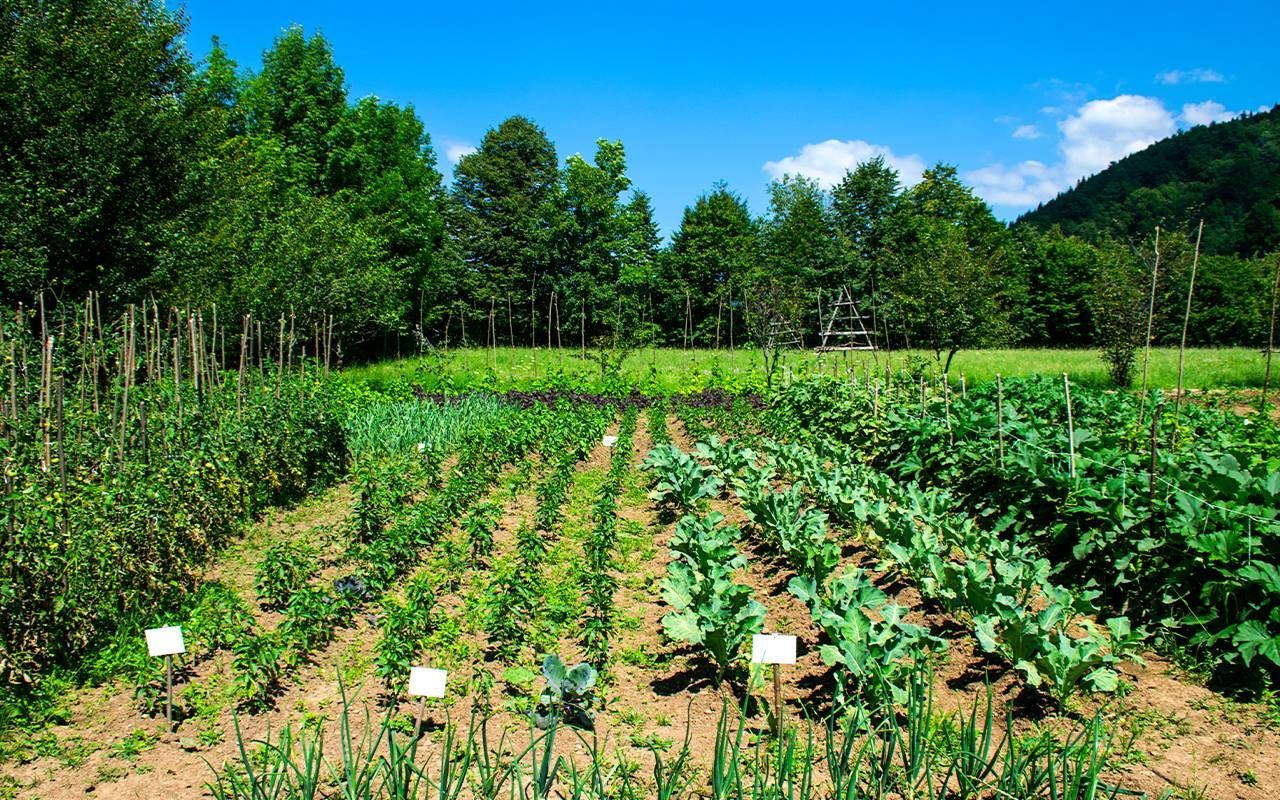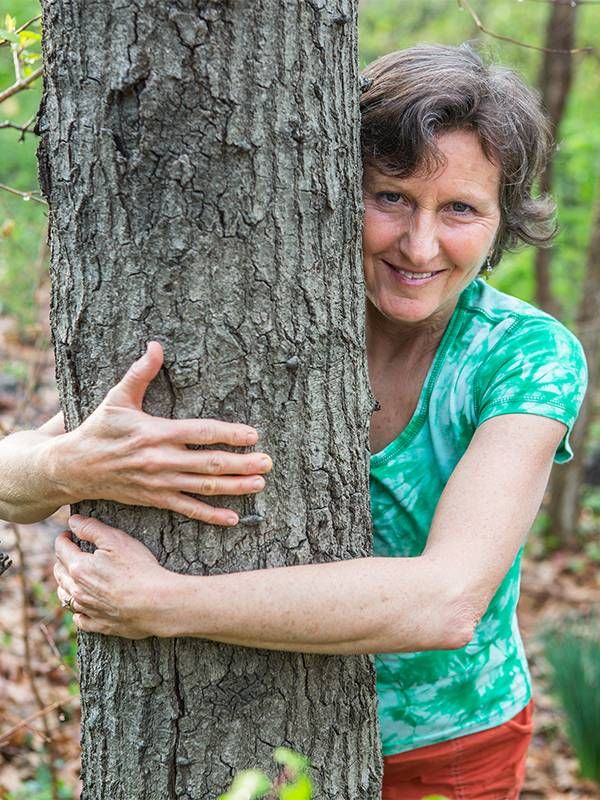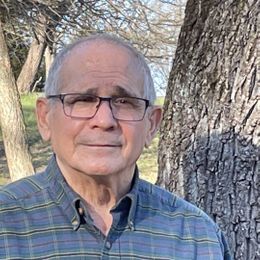Thinking Beyond Your Plate With The Food Sleuth
Here's how Melinda Hemmelgarn of Food Sleuth Radio is taking a close look at the intersection of food, society and global warming
It's hard enough to decide what to make for dinner, much less summon the willpower to bypass the ice cream aisle when I grocery shop. Sure, a diet rich in fruits and vegetables will help keep me healthy, but like everyone else, I am tempted by other foods that aren't good for me.

Moreover, as I have grown older, choosing what to eat has become more complicated and rewarding. Listening to Food Sleuth Radio, a syndicated program, I am inspired each week to consider how my food choices affect people I'll never meet and places I'll never see.
Food Sleuth Radio features interviews with leading researchers, public health experts and social justice advocates. Melinda Hemmelgarn, a registered dietitian and "investigative" nutritionist, hosts the program and its recorded podcast version.
If anyone understands how our daily food choices intersect with global warming, society and a healthy lifestyle, it's Hemmelgarn.
At age 66, she interviewed and recorded more than 700 influential professionals, giving her and anyone digging through the program's archives an in-depth knowledge of our food system. If anyone understands how our daily food choices intersect with global warming, society and a healthy lifestyle, it's Hemmelgarn.
At the beginning of each episode, she urges listeners to "think beyond your plate and connect the dots between food, health and agriculture."
On a recent spring morning, I visited Hemmelgarn, chatting with her over a cup of coffee on the porch of her home in Columbia, Missouri.
Hemmelgarn comes across as everyone's idea of a friendly next-door neighbor on air. She is no different in person, although she is an award-winning journalist, speaker and dietitian with 40 years of experience in clinical, academic and public health nutrition.

Her radio program, which is produced by her husband, Dan, is carried out monthly by 50 community radio stations, and her articles have been published in various professional and consumer magazines.
The Food Sleuth Mission
Hemmelgarn wants to help people think critically about food and the agricultural system that produces it. Her message is based on established science and a passionate belief in food's power to improve individuals' health and protect our environment.
"The choices we make not only matter to our personal health, but also to the farmers who produce our food, to the soil where it was grown, and our efforts to mitigate climate change," she says.
As a child, Hemmelgarn learned to regard food as preventive medicine from her grandmother, an immigrant from Eastern Europe. But it was when completing a W.K. Kellogg Food and Society Policy Fellowship that she genuinely appreciated how agriculture could either enhance human life and the natural world or degrade the environment by wiping out diverse species and polluting our water and land.
But, of course, it's not only the environment that Hemmelgarn wants to protect. The more she learned, the more committed she became to working to protect farmers and farmworkers from exposure to harmful chemicals and economic exploitation.
Although optimistic by nature, Hemmelgarn's education and experience have made her a hopeful realist committed to changing the status quo.
Nevertheless, she loses sleep over several emerging trends: the consolidation of the food system, with a handful of corporations controlling most of the nation's production and distribution of food, and the corrosive impact of conventional industrial agriculture, which includes the use of patented seeds, fossil-fuel-derived fertilizers and pesticides, and GMO crops.
"Don't be afraid of asking for what you want."
"The majority of GMO crops — the commodity crops, such as corn and soybeans — are engineered to withstand an increasing number of herbicide sprays," she says. "Consolidation of the food system has unintended consequences for food quality, environmental quality, public health and the ability of farmers to determine which crops they grow and how they raise their animals."
Most animals raised in an industrial system receive antibiotics and spend much of their lives confined in concentrated animal feeding operations (CAFOs), where thousands of animals are raised on feedlots or inside buildings.
What's a Consumer to Do?
Hemmelgarn would like everyone to understand more about our food system and become their own Food Sleuth, starting with her key questions below. She also says it's essential to speak to grocery store managers and restaurant servers about their food and ask what you want to purchase.
"Don't be afraid of asking for what you want," she says.
Hemmelgarn, who serves on the board of Beyond Pesticides, a Washington D.C.- based nonprofit promoting non-chemical and least toxic alternatives, chooses organic produce and pasture-raised meat and dairy products whenever she can.
But she's not self-righteous about her own food choices. "Organic food may seem to cost more than food from industrial farming operations at the checkout, but food from the industrial system costs taxpayers more in the long run," she says. "I realize I am speaking from a privileged position, and that's part of the injustice of our food system."
The vast majority of food found in grocery stores comes from conventional farms and CAFOs. But, "Consumer demand can make a difference," Hemmelgarn says.
Selecting healthy foods that contribute to a better world requires thinking beyond your plate.
She recalls asking a chain grocery store manager for organic fruits and vegetables decades ago. She was told they couldn't stock organic produce because it wouldn't stay fresh. However, the same store today has a sign advertising that they have more than 100 organic varieties.
Hemmelgarn heartily endorses going to farmers' markets when possible. Not only do dollars spent there support local farmers, but getting to know the people who produce your food makes grocery shopping a more fulfilling experience.
Many farmers' markets also create a festive atmosphere by providing performance space for buskers. "It's like going to a party," Hemmelgarn says.
Eating more fresh fruits and vegetables, less — but higher quality — meat, and avoiding highly processed food is sound advice any dietitian would dispense. But another step we can take to reduce global warming when shopping is to select products with a minimum of plastic packaging, opting for glass over plastic and paper bags over plastic ones.
Aside from the obvious problem of plastic pollution harming wildlife, water quality and public health, plastics are derived from fossil fuels, contributing to climate change. "When I go through the grocery store, I am overwhelmed by all the plastic packaging – plastic bottles further wrapped in more plastic," Hemmelgarn says.
What to Ask
Wherever Hemmelgarn speaks to groups, she distributes her list of critical questions she created to help consumers make wiser food purchases:
- Where did my food come from?
- Who produced it?
- Under what conditions was my food grown or produced?
- Were workers treated fairly and animals humanely?
- What's in or on my food? (or not)
- Were pesticides, antibiotics, hormones, genetically modified ingredients or additives used in producing my food?
- Is my food rich or poor in nutrients?
- What are the unintended consequences of my food (and farming) choices?
- How might my food choices affect the environment and future generations?
As Hemmelgarn says each week, selecting healthy foods that contribute to a better world requires thinking beyond your plate. But consumer demand can only do so much.
So Hemmelgarn encourages her listeners to help shape the food system's future by voicing their concerns to government officials. "Shouldn't public health and environmental health take precedence over corporate profits?" she asks while doing her best to make it so.


